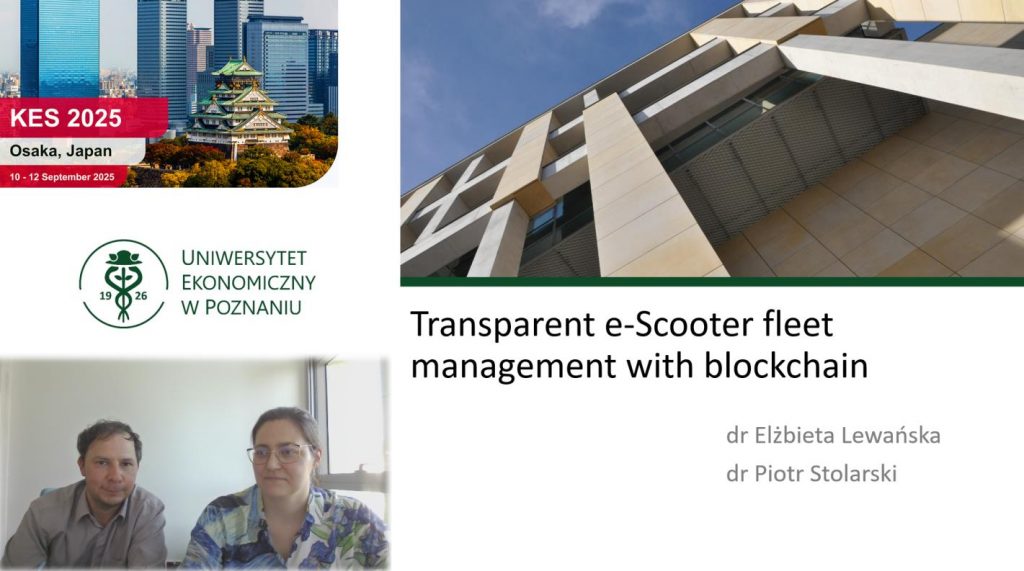
The research conducted by scientists from the Department of Information Systems on the use of IT in solutions supporting sustainable development was presented at the international scientific conference KES 2025 (29th International Conference on Knowledge-Based and Intelligent Information & Engineering Systems). The event took place in September 2025 in a hybrid format in Osaka (Japan) and online.
One of the presentations concerned the paper titled “Transparent e-Scooter Fleet Management with Blockchain” by Dr. Elżbieta Lewańska and Dr. Piotr Stolarski. The article presents a proposal for a city e-scooter fleet management system using blockchain technology. Electric scooters for rent have become a permanent feature of urban landscapes, yet their management poses numerous challenges, such as poorly distributed vehicles or the lack of aggregated usage statistics. The authors propose the use of blockchain to increase transparency, facilitate settlements, and support the development of e-mobility strategies by city authorities. Smart contracts allow to automatically track scooter availability, handle ride settlements, and even dynamically redistribute vehicles to areas of the city where they are most needed. The entire system operates transparently, without the need for central supervision. User privacy is protected because location data are not shared in real time. The system prototype was tested on real-world data.
The second paper, titled “Enhancing ESG Reporting Through Process Mining: A Taxonomy of ESG Events” by Dr. Elżbieta Lewańska and Dr. Milena Stróżyna, focuses on the potential for automating the monitoring of ESG indicators in business processes through the use of process mining tools. Companies are increasingly required to report their impact on the environment, society, and governance (ESG). Automating this process poses many challenges, as data come from multiple sources (e.g., transactional systems, IoT sensors, or external providers) and exist in various formats (e.g., text, images, video), while the demand for analytical accuracy continues to grow. The authors proposed a taxonomy of ESG events that enables the application of process mining techniques to collect and process ESG data. This represents a first step toward a future in which ESG management will be data-driven and automated rather than manual.